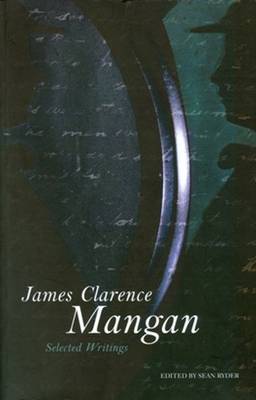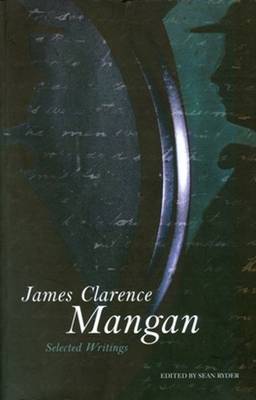
- Afhalen na 1 uur in een winkel met voorraad
- Gratis thuislevering in België vanaf € 30
- Ruim aanbod met 7 miljoen producten
- Afhalen na 1 uur in een winkel met voorraad
- Gratis thuislevering in België vanaf € 30
- Ruim aanbod met 7 miljoen producten
Zoeken
€ 41,95
+ 83 punten
Uitvoering
Omschrijving
For a century and a half, the reputation of the Irish poet, James Clarence Mangan (1803-1849), has been based mainly upon a small number of poems, and a biographical tradition that cast him as a tortured genius. W. B. Yeats and James Joyce were both admirers of his work on these grounds. Yet his achievement as a whole was much more complex and varied, ranging across over 900 poems and a significant amount of creative and critical prose. In this comprehensive single-volume selection of Mangan's poetry and prose, Mangan can be appreciated not only for the poignancy and power of his well-known late poems and autobiographical writings, but also for those talents admired by his original readers: his astonishing metrical skills, his love of wordplay, his surrealist humour, and his sympathetic understanding of Irish and European literatures. He emerges here as a witty and intelligent craftsman as well as a emotionally-charged romantic, and his audacious experiments with translation and parody make him seem remarkably contemporary.In this edition, too, Mangan's fascinating prose commentaries are restored to their original positions surrounding his poems, and readers are for the first time given a generous selection of Mangan's critical writing and letters.
Specificaties
Betrokkenen
- Auteur(s):
- Uitgeverij:
Inhoud
- Aantal bladzijden:
- 514
- Taal:
- Engels
Eigenschappen
- Productcode (EAN):
- 9781900621922
- Verschijningsdatum:
- 2/03/2004
- Uitvoering:
- Paperback
- Formaat:
- Trade paperback (VS)
- Afmetingen:
- 160 mm x 230 mm
- Gewicht:
- 907 g

Alleen bij Standaard Boekhandel
+ 83 punten op je klantenkaart van Standaard Boekhandel
Beoordelingen
We publiceren alleen reviews die voldoen aan de voorwaarden voor reviews. Bekijk onze voorwaarden voor reviews.








